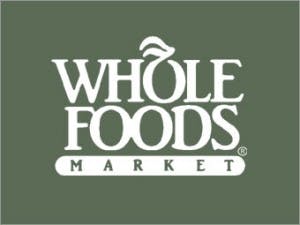If you want to be green, you’ll find there are plenty of GMO-free foods to choose from for your refrigerator, but when it comes to avoiding Monsanto Company (NYSE:MON)‘s drive to monopolize the world’s seed market with its genetically modified Roundup Ready seeds, there’s actually a dearth of GMO-free stocks to invest in.

And that’s about where the purity list ends for publicly traded companies.
Guilt by association
Dairy farmer The WhiteWave Foods Co (NYSE:WWAV) uses non-GMO soybeans in its Alpro and Silk soy milks, but its Land O’Lakes brand comes from a company of the same name whose Forage Genetics subsidiary is a partner with Monsanto Company (NYSE:MON) in the development of Roundup Ready alfalfa seeds.
And while we can point to various brands like Kashi that are verified non-GMO, its owner Kellogg Company (NYSE:K) makes no such assurances about its Corn Flakes or Frosted Flakes. Sure, it’s difficult to be pure when nearly 90% of the U.S. corn crop has been messed with by scientists, and though we might want to buy Kashi cereals to eat, we may find investing in its parent hard to swallow if we want to be consistent.
And even then Kashi admits it can’t fully guarantee all of its products haven’t been cross-pollinated by GMO crops. Two fields planted side by side, one GMO the other GMO-free, will result in the natural crops getting polluted with the altered traits due to cross-pollination.
Several court cases have dealt with farmers who were being sued by Monsanto Company (NYSE:MON) because they claim the agri-giant’s crops cross-pollinated their own. Thus far the courts haven’t bought into those defenses yet, and the Supreme Court recently agreed that Monsanto Company (NYSE:MON) seed patent protection extends for all time as the seeds propagate.
So with its patents intact and the high possibility of cross-contamination occurring, the ability to maintain a pure seed strain unaffected by Monsanto Company (NYSE:MON)’s meddling becomes more difficult. And finding companies that can keep up the pretense of purity becomes more challenging as well.
Heck, Monsanto’s pervasiveness is such that even Whole Foods Market, Inc. (NASDAQ:WFM) can’t guarantee all the products it sells are GMO-free. It’s certainly committed to identifying foods that have had their genetic code messed with, but without a labeling requirement, not even it can say with certainty its products are free from contamination.
The synthetic trinity
Together, Monsanto, E I Du Pont De Nemours And Co (NYSE:DD), and Syngenta AG (ADR) (NYSE:SYT) control 53% of the world’s seed production, yet their reach is far greater as they sign cross-licensing agreements with other companies. Monsanto recently hooked up with The Dow Chemical Company (NYSE:DOW) and Bayer to have its technology embedded in their products.
Both Syngenta AG (ADR) (NYSE:SYT) and DuPont have responded in kind, and in fact, E I Du Pont De Nemours And Co (NYSE:DD) and BASF first sued each other before realizing they could spread further by cross-licensing their respective technologies instead. DuPont did the same thing with Monsanto, too.
The food chain has become increasingly proliferated with genetically modified food to the point that we have no idea what we’re even eating. Just adding sugar to your coffee increases the likelihood you’re ingesting GMO-stained sweetness. While 45% of the U.S. sugar market is derived from sugar cane (and thus far not contaminated with genetic modification), the other 55% of it comes from sugar beets, and 95% of that crop is grown from Monsanto’s GMO seeds.